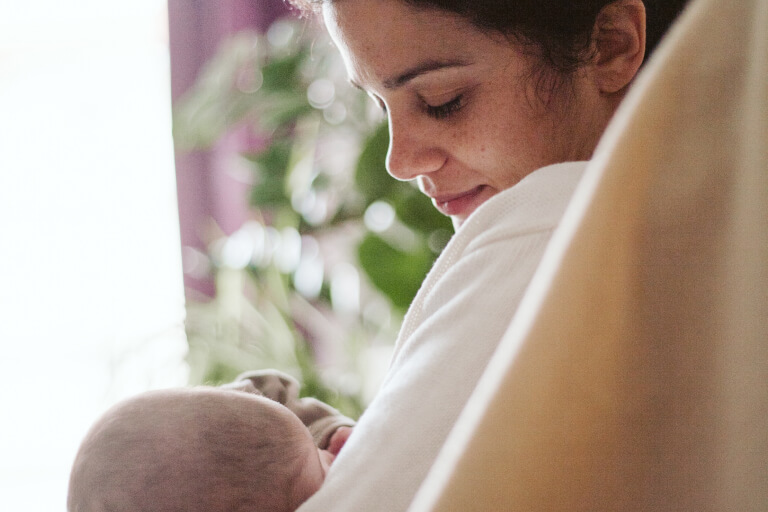If the newborn is premature or has some health issues, hospitalization in the Neonatal Intensive Care Unit (NICU) is required. NICU treatment offers life-supporting care but also physical and emotional detriments to new mothers, especially with breastfeeding. Although one of the main providers of nutrition and immunity, breastfeeding in these settings can be very difficult.
It is here that professional intervention by an understanding neonatologist in Dubai comes in. With proper management, NICU mothers can establish and continue lactation, providing their babies with the best possible beginning in life.
Why Breastfeeding Matters So Much for NICU Babies
Breast milk is specially created to give a baby exactly what he or she needs to grow, and it’s especially the case for NICU babies. Such tiny and fragile babies have immature immune and digestive systems and are therefore more at risk of infection and complications.
Some of the most significant benefits of breast milk for NICU babies are:
- Immunity Boost: Full of antibodies, enzymes, and white blood cells that combat infection.
- Digestive Support: Less likely than formula to irritate the digestive system, reducing the risk of necrotizing enterocolitis (NEC), a life-threatening condition common among preemies.
- Better Development: Linked to enhanced brain development and cognitive outcomes in the long term.
- Bonding: Skin contact and breastfeeding govern the baby’s body temperature and heart rate and optimize emotional bonding.
A knowledgeable neonatologist in Dubai may offer the security that even the weakest of new babies get to enjoy the restorative power of breast milk with the help of donor programs, breast milk fortifiers, and customized nutrition practices.
Challenge for NICU breastfeeding mothers
NICU breastfeeding is repeatedly disrupted by health interventions or parent-infant separations. Disrupted breastfeeding has severe consequences on the supply of milk and the mother’s confidence. Challenges are:
Common challenges include
- Delayed Lactation: Stress, fatigue, or cesarean delivery may slow down milk production.
- Insufficient Breast Stimulation: Premature babies in the intensive care unit may not have an opportunity to latch right away, so it will be harder to stimulate milk production.
- Limited Skin-to-Skin Contact: Having the baby away will delay bonding and milk letdown.
- Emotional Stress and Anxiety: Feelings of helplessness, fear, or guilt will discourage mothers from continued breastfeeding.
- Lack of Support: Mothers might believe that their milk is not good enough without the proper education or support they need.
That’s why constant support from a professional neonatologist in Dubai and trained lactation consultants is necessary. They collaborate to support families through safe pumping practices, feeding techniques, and emotional coping strategies.
How Neonatologists and NICU Teams Provide Breastfeeding Support?
An experienced neonatologist in Dubai works hand-in-hand with lactation consultants and NICU nurses to ensure a breastfeeding-supportive setting even in cases of high risk. Here’s how:
Early Initiation Support
Mothers are supported to initiate expressing milk 1 to 6 hours after birth to induce milk expression, even if direct breastfeeding isn’t yet possible.
Skin-to-Skin Contact (Kangaroo Care)
Once the infant is stabilized, skin-to-skin contact is initiated. This aids not only in bonding but also in lactation hormones and milk letdown.
Pumping Schedules
Frequencies of pumping (every 2–3 hours) are advised, and hand-expression skills are taught as necessary to assist with supply.
Individualized Feeding Plans
For infants who cannot nurse directly, expressed milk can be given by tube feeds or bottles until they can nurse.
Emotional and Psychological Support
A gentle care that calms the mother’s anxiety and makes her experience “normal” diminishes stress, which in turn promotes milk production.
At Dr. Olfa’s Neonatal Services, we provide full-service NICU care and expert breastfeeding assistance for each family so no mother ever feels she’s alone.
The Donor Milk and Fortifiers
If the mother’s milk is not yet sufficient in terms of volume, donor human milk is typically employed as a temporary substitute. It’s safe, screened, and pasteurized. Occasionally, fortifiers are also added to breast milk to meet the high nutritional demands of preterm infants.
Discuss these options with your neonatologist in Dubai so that feeding time is suitable according to the baby’s health and growth.
Long-Term Benefits for Mother and Baby
The benefits of breastfeeding NICU babies go beyond the first few weeks:
- Fewer Respiratory and Gastrointestinal Illnesses
- Improved Growth and Weight Gain
- Increased Intimacy in Mother-Child Relationship
- Decreased Rehospitalization
- Better Maternal Self-Esteem and Health
With proper follow-up, even mothers of very premature infants can breastfeed for months, perhaps years.
How Dr. Olfa Koobar Can Help
At Dr. Olfa’s Koobar, we provide specialized NICU care for preterm and medically fragile newborns. Our NICU support services are:
- Individualized breastfeeding plans
- Lactation specialist access
- 24/7 neonatal medical care and monitoring
- Family-centered care and education
If your baby is in the NICU, you don’t have to do this by yourself. With advice from our experienced neonatologist in Dubai, we will accompany you every step of the way.
Are you a NICU mom in need of breastfeeding guidance and support?
Schedule a consultation today with Dr. Olfa, a trusted neonatologist in Dubai.




